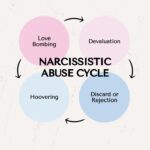What is fawning – a trauma response among survivors?

When trauma strikes again and again—especially in childhood, or in bonds meant to feel safe—a soul learns to survive, not to thrive. The nervous system bends, reshapes itself like water finding cracks in stone. One of its quietest defenses is fawning—the art of becoming small, agreeable, invisible. A tender, desperate dance to keep danger at bay by keeping others pleased.
In this dance, the word “no” disappears. Boundaries blur. The child who was once punished for resistance grows into an adult who fears it. Somewhere deep within, a belief takes root: “If I keep them happy, I stay safe—even if I lose myself in the process.”
This survival song comes at a cost. It steals the voice, hollows the self. The survivor may:
• Swallow their needs to soothe another’s.
• Mistake guilt for empathy.
• Feel discomfort in their own skin when they dare to speak up.
• Fear the very boundaries that could set them free.
But this is not weakness. This is wisdom written in the language of pain. Still, it’s a wisdom that can be rewritten.
Healing is not a loud revolution—it is the soft return to the self. It’s the quiet bravery of saying no, the steady work of learning to trust your inner compass, and the gentle unfolding of a voice that was never meant to stay silent.



Comments (0)